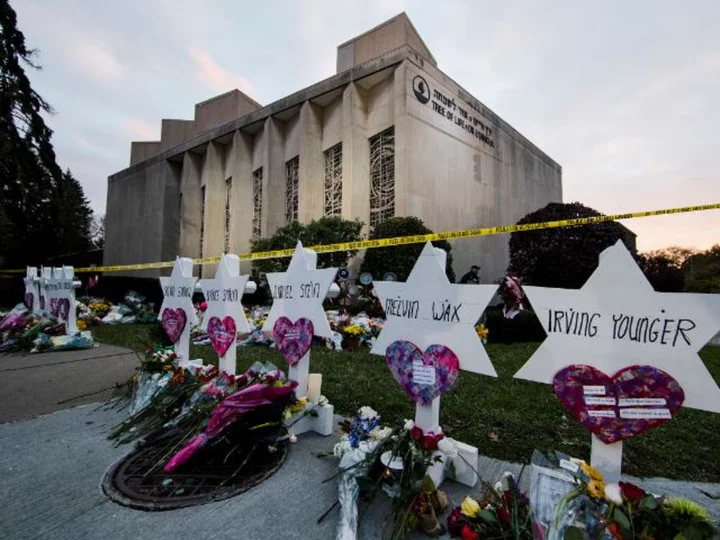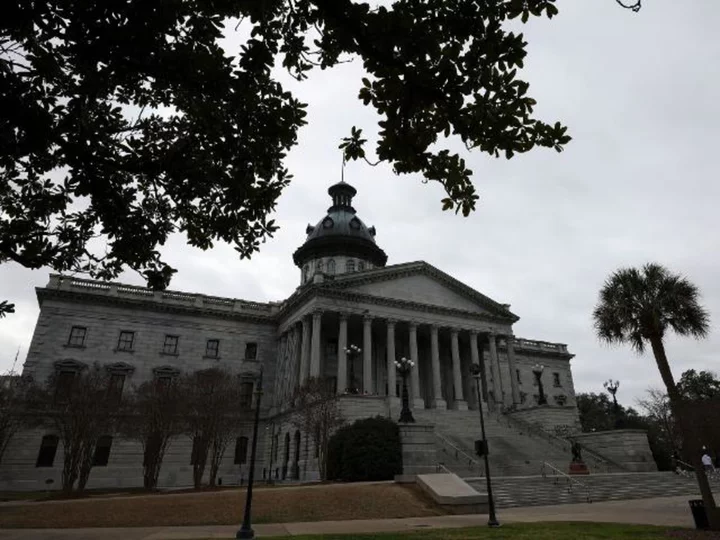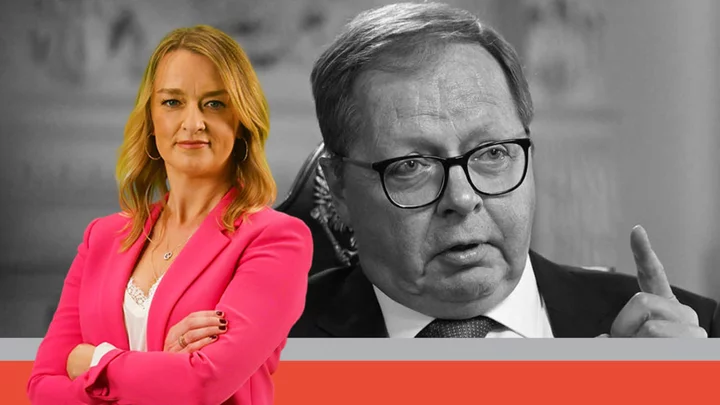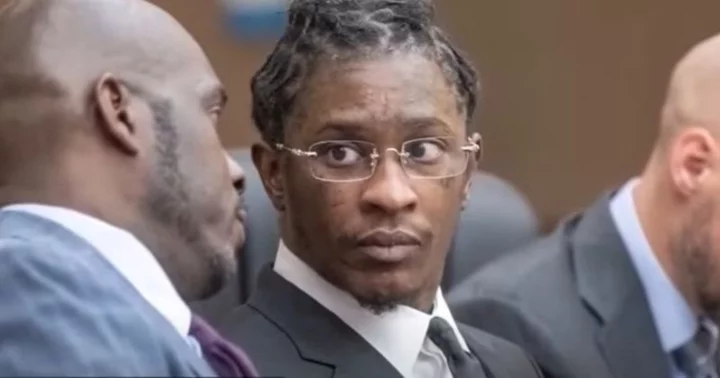Federal jurors in the Pittsburgh synagogue shooting trial will soon decide whether to sentence the convicted gunman to death or life in prison -- two potential avenues for justice that in the years since the deadliest antisemitic attack in US history have found varying levels of support in an otherwise unified community.
As expected, shooter Robert Bowers was found guilty this month of all 63 counts he faced stemming from the Sabbath morning massacre at the Tree of Life synagogue that left 11 worshipers dead as three congregations gathered to pray. Eleven counts of obstruction of free exercise of religious beliefs resulting in death and 11 counts of use and discharge of a firearm to commit murder during a crime of violence were capital counts, making Bowers eligible for the death penalty.
The 50-year-old shooter's attorneys never contested he committed the 2018 attack, and the case's main focus is the issue now at hand: whether he is sentenced to death -- still an option amid a federal moratorium on carrying out executions -- or life in prison without the possibility of parole. For a death sentence to be handed down, the jury must be unanimous.
But even in a community united -- not only its grief but in its hope justice will be done -- unanimity around the death penalty is elusive: In the years since the massacre, the victims' families and congregations have expressed differing views about whether the shooter should be put to death. Some are convinced so egregious an attack warrants capital punishment, while others fear a death sentence could retraumatize their community or a life sentence would better honor the victims, they've said.
The divergence reflects a broader national split on capital punishment. Recent high-profile cases, too, have shown juries don't always send mass killers to death row, with the gunman who killed 17 people at a Parkland, Florida, high school and the terrorist who killed eight on a New York City bike path sentenced to life in prison after their juries declined to unanimously opt for death.
Most of the families of those killed at the Pittsburgh synagogue want the shooter sentenced to die, according to a letter to the editor of the Pittsburgh Jewish Chronicle published in November and signed by seven of the nine families whose relatives were murdered.
"We are not a ruthless, uncompassionate people; we, as a persecuted people, understand when there is a time for compassion and when there is a time to stand up and say enough is enough -- such violent hatred will not be tolerated on this earth," reads the letter written to counter unspecified opinion pieces opposing the US Justice Department's decision to seek a death sentence.
"Please don't tell us how we should feel, what is best for us, what will comfort us and what will bring closure for the victims' families. You can not and will not speak for us," it reads. "The massacre of our loved ones was a clear violation of American law -- mass murder of Jews for simply being Jewish and practicing Judaism, driven by sheer antisemitism -- which the law rightfully deems is a capital offense."
Others have offered a different view. The targeted Dor Hadash Congregation previously voiced its opposition to the death penalty in this case, as did the rabbi of New Light Congregation, who narrowly escaped the shooting in which his faith community lost three worshipers. CNN reached out to Rabbi Jonathan Perlman for comment on his prior position.
"I would like the Pittsburgh killer to be incarcerated for the rest of his life without parole," Perlman wrote in an August 2019 letter to then-Attorney General William Barr before the decision to seek a death sentence was made. "He should meditate on whether taking action on some white separatist fantasy against the Jewish people was really worth it. Let him live with it forever."
Perlman's focus, he wrote, was "not letting this thug cause my community any further pain."
"We are still attending to our wounds, both physical and emotional, and I don't want to see them reopened any more. Many of us are healing but many of us (have) been re-traumatized multiple times," Perlman said. "A drawn out and difficult death penalty trial would be a disaster with witnesses and attorneys dredging up horrifying drama and giving this killer the media attention he does not deserve."
While the Torah "unambiguously" allows for capital punishment, rabbis in the first and second centuries were hesitant to support its implementation, said David Kraemer, professor of Talmud and rabbinics at the Jewish Theological Seminary.
They feared the flaws of a human court system out of concern innocents could be inadvertently punished, he told CNN. Those rabbis believed it best to err on the side of letting a guilty person go free in part because they believed the guilty would receive an appropriate punishment after death.
"I think the reason they were comfortable with that is because they believed that there was a divine court," Kraemer said, "that would correct the error that the human court may have made."
'We want justice,' victims' sister says
The Justice Department under Barr, an appointee of Republican President Donald Trump, initially chose to try the Pittsburgh shooting as a capital case, even as the US government at that time had not executed a federal death row inmate in almost 20 years. That changed in the Trump administration's waning days, when 13 federal inmates were put to death over six months ending in January 2021.
The Dor Hadash Congregation lamented the Barr-era decision, writing afterward in late August 2019 it was "saddened and disappointed" the agency chose to push forward with a capital case, despite a letter the congregation said it had sent that same month asking both sides to agree to a plea deal giving the gunman life in prison without parole.
"A deal would have honored the memory of Dor Hadash congregant Dr. Jerry Rabinowitz, who was firmly and unequivocally opposed to the death penalty," its statement read. "It would have prevented the attacker from getting the attention and publicity that will inevitably come with a trial, and eliminated any possibility of further trauma that could result from a trial and protracted appeals."
The congregation did not feel commenting on the death penalty was appropriate now that the trial has moved on from the guilt phase, its spokesperson told CNN. "We remain very grateful to the Department of Justice and the US Attorney's office for their work in this matter over the course of the past 4 1/2 years," Pamina Ewing of Dor Hadash said.
Then in July 2021 -- a day after he issued a moratorium on federal executions -- Democratic President Joe Biden's Attorney General Merrick Garland was sent a letter from seven of the nine families of those slain in the Pittsburgh synagogue attack, urging him to continue to pursue a death sentence in the case, according to Diane and Michele Rosenthal, the sisters of victims David and Cecil Rosenthal.
The letter said the "vast majority of the immediate victim-family members" had not wavered in their desire for the death penalty. "As such, we respectfully beseech you to uphold the prior DOJ decision on the death-penalty qualification of this Capital Murder case and permit it to proceed as originally decided."
The letter aimed to "reflect ... our support in seeking the death penalty in this particular tragedy," the sisters told reporters in April, weeks before the trial began. They spoke only for their own family, they said, adding the other signatories had agreed to let them share the letter.
The Justice Department under Garland is prosecuting the case, making it the second federal death penalty trial in the era of Biden, who'd campaigned on a promise to abolish the punishment at the federal level but has taken few substantive steps toward doing so.
Since his appointment two years ago, Garland has not authorized the department to seek the death penalty in any new cases, a Justice Department spokesman said, and he continues to assess new requests for authorization to seek or withdraw the death penalty on a case-by-case basis, consistent with federal law and the Justice Manual.
Americans overall remain divided nearly down the middle on the death penalty, as they have been for years following precipitous drops in support for it over recent decades. About 55% of Americans say they are in favor of the death penalty for convicted murderers, a split that's been relatively unchanged for at least six consecutive years, polling from Gallup shows.
And like in Pittsburgh -- where community members have supported each other before the trial and during it -- victims of violent crime and their families are no monolith. While some express opposition to capital punishment, others look to it for some semblance of closure or justice.
The Pittsburgh synagogue "massacre was not just a mass murder of innocent citizens during the service in a house of worship. It was an antisemitic hate crime," Diane Rosenthal said in April. "The death penalty must apply to vindicate justice and to offer some measure of deterrence from horrific hate crimes happening again and again."
"We don't want to be here," she said, "and we know the emotional toll this trial potentially brings. But we owe it to our brothers, Cecil and David."
Added Michele Rosenthal: "The suggestions published or reported that family members be relieved of the stress of a trial or that a cost-benefit analysis dictates a plea are offensive to our family," she said. "Our family has suffered long and hard over the last four and a half years. ... We don't want to have to continue to defend ourselves and our position.
"We want justice."
Beyond the families, many simply are bracing for the Pittsburgh synagogue trial's penalty phase and how it may impact those touched by the wider ripples of the attack. After the gunman's conviction, the Jewish Community Center of Greater Pittsburgh opted to "take no position on what justice is," its president and CEO told reporters.
"We trust the justice process," Brian Schreiber said.
Whatever comes of the penalty phase, it will be "gut wrenching," and "reopen wounds," said Jeff Finkelstein, president and CEO of the Jewish Federation of Greater Pittsburgh.
"They keep getting reopened for us here in our Pittsburgh community," he said, "not just the Jewish community but this greater Pittsburgh region."









